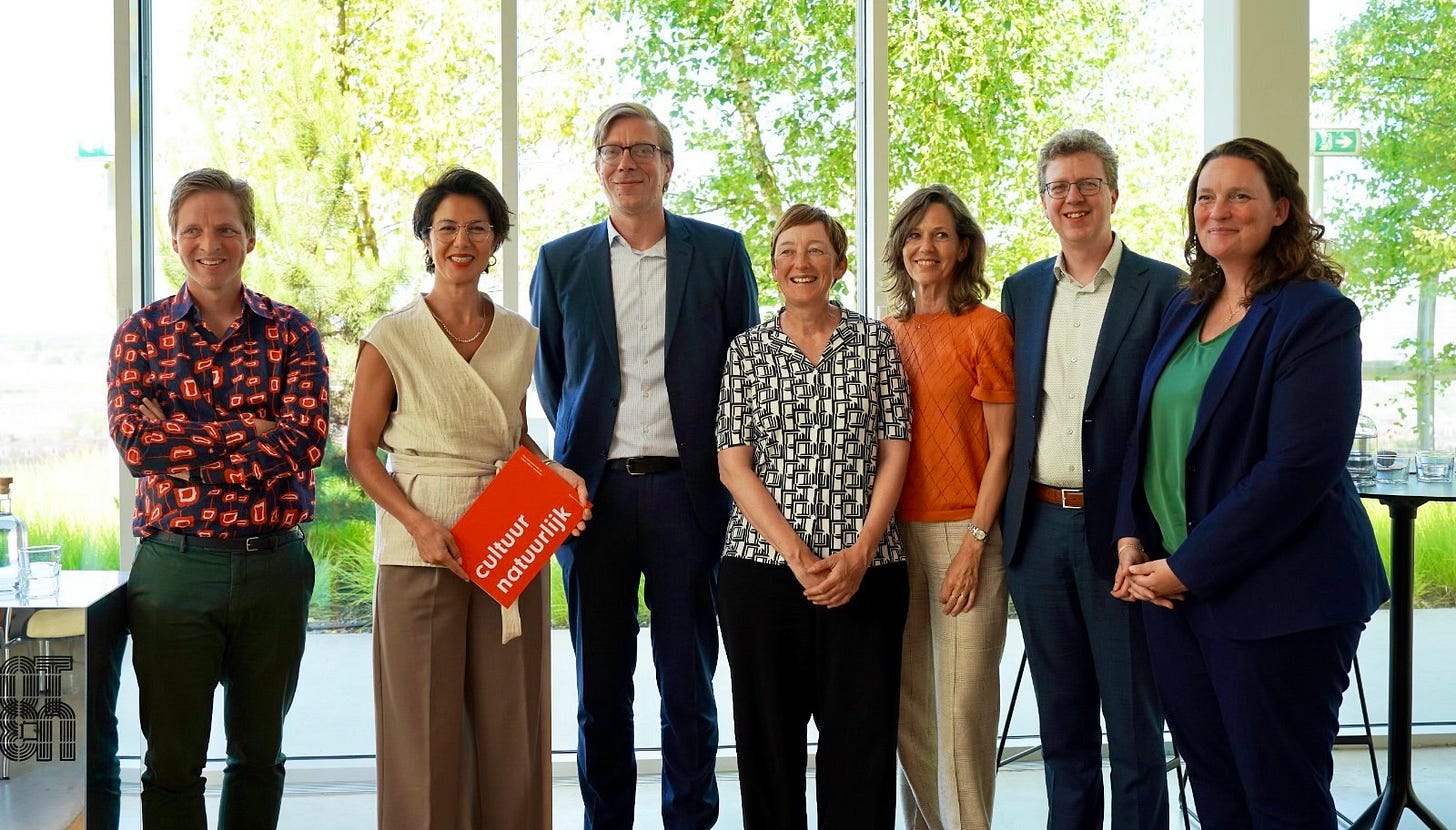#108 The prohibition of fun
It had been an eternity since I last did something that every national newspaper took notice of. This week I finally did it—oh, and of course, the esteemed populists had a field day with it too. Those brilliant bloggers were spot on: I was part of a committee that tirelessly worked on the ultimate mission of banning fun.
The committee was initiated by the Council for Culture, a group of witty individuals advising the government on all matters related to art and creativity. Our mandate was crystal clear: provide recommendations to make culture and the creative industries more ecologically sustainable. For months, I found myself surrounded by a team of self-proclaimed experts locked in a room, interviewing each other (and occasionally an artist) until we couldn't bear it any longer. And finally, just last Wednesday, we unveiled our groundbreaking results—a whopping 76 pages in the finest Dutch, with a summary in English for those daring enough to give it a glance. The heart of our conclusion? If we strip life of its joy, the world will magically become more sustainable.
You see, I belong to a generation that remembers a time when sustainability meant adding fun to people's lives. We used to bring clean and cheap electricity to villages, enabling them to enjoy the luxury of a clinic and cold drinks. Building schools meant empowering the disenfranchised. Parks and pollution-free forests provided an escape from the mundane. But alas, those days are long gone, my friends.
Now, we claim to know better—or at least, we like to think so. We've come to the obvious realization that the environmental cost of flying a philharmonic halfway around the world to perform a concert, when there are already a hundred recorded versions available on Spotify, simply cannot be justified. It is undeniably unethical to create exhibitions with fresh contemporary art when there are thousands of existing, unseen classical paintings. And why on earth do we continue producing romantic comedies set in a multitude of countries? It baffles me. Oh, and let's not even get started on books—remember, trees don't grow on trees!
In this brave new world, fun is a luxury we can no longer afford if we wish to survive climate change.
So, with an air of DeSantian delight, we have fervently recommended to the government (among other equally ludicrous things) to discourage incessant creation. Naturally, the alt-right vehemently disagrees. They've always championed more theater, more contemporary art, more books—the audacity! Their response this week was as predictable as the sunrise. Less fun for them means fewer "woke" ideas to protest against. Ah, the self-serving bunch they are. "Let's make more art we can boycott!" they proclaim.
I firmly believe that giving the right something to boycott isn't worth depleting our ever-dwindling CO2 budget.
But fear not, dear friends, for I am not content with solely prohibiting fun in the private sphere. Oh no, I have much grander plans. Boredom, my comrades, is the secret ingredient to sustainability. Therefore, I have taken it upon myself to promote excruciatingly dull ideas in the workplace as well. Just this week, I triumphantly raised the temperature of our refrigerators, ensuring our cakes no longer freeze—a true revolution in the office, I assure you. And a brilliant colleague had the bright insight to suggest turning off lights and air conditioning when leaving an office. Imagine that! We are even in the process of limiting the use of diesel oil, favoring the grandeur of biofuels instead. Out with the fun, in with the new!
Before you know it, fun will be nothing more than a dusty relic of the past. We will have reached the pinnacle of sustainability—a world where everyone can prosper, well, if you can call a life devoid of enjoyment and excitement "prosperity." But hey, at least we'll be alive. Alive!
May your week be the dullest of them all,
— Jasper

